Dispatch #2 – On Cities
Glasgow, Tokyo, Munich, Berlin
In his most famous, much alluded to but little read, work Postmodernism (1991), Fredric Jameson wrote about a nostalgia for the present, which he traces to certain works of American literature of the 1950s:
the misery here is the misery of happiness, or at least contentment (which is in reality complacency) […] the gratifications of the new car, the TV dinner and your favourite program on the sofa-which are now themselves secretly a misery, an unhappiness that doesn't know its name, that has no way of telling itself apart from genuine satisfaction and fulfilment since it has presumably never encountered this last.
This summer has unfortunately been spent visiting people in cities (Glasgow, Munich, Berlin), seeing family, friends, acquaintances, etc. Almost everything felt like an obligation, and I seemed to have begrudged every minute of it, which in retrospect makes me a little ashamed.
…
Glasgow
When I lived in Glasgow, I lived in the West End of the City. When I came back from living in France after two years in 2014, I noticed that a lot of people started moving to the Southside as the West began to become more and more prohibitively expensive. The South was always a mostly residential area when I lived in the city, and it mostly still is. It was very rare for me to go there, and I knew so little about its geography or outlines. By the time I moved away permanently in 2016, everyone I knew had moved South. Henceforth, every time I returned to the city, I would end up spending a long time in an area of the city that was quite new and a somewhat alien place, and on the whole, the experience was always quite irritating. Not because the South is not itself quite pleasant, but because my own powerful sense of nostalgia was never fully satiated. When I lived in Glasgow, I walked everywhere and rarely took public transport. I remembered with a characteristic sense of poignant melancholy, many moments of deep contemplation, false or near epiphany, standing at traffic lights waiting for the signal to cross. When I was back this time with a rowdy toddler in tow, I realised that this previous, decidedly romantic memory was probably because the traffic lights take so bloody long to turn green – and once green, only give you around 10 seconds to get across.
…
I took my son to the Kelvingrove Art Gallery, and he particularly enjoyed all of the different animals. In a moment of strange synchronicity, I came across this portrait of Robert Bontine Cunningham Graham. I couldn’t remember if it had always hung there or whether it was only there temporarily. That morning, I’d received an email from my old PhD supervisor’s family. He had done his PhD on Joseph Conrad and Cunningham Graham in the 1960s. I had hoped to see him and catch up like we had done last year, and like we do every time I visit. He has always been a very sturdy and independent person despite his age, but last year, for the first time, I was concerned about how he might get back to the train station after our lunch. I was told that his Alzheimer’s is now in a very advanced state, and it doesn’t seem likely I will ever be able to speak to him again. One of the kindest, most charming and erudite men I have ever had the privilege to know.
…
The past is less another country than it is a different dimension, a shadow realm which contours the present and imbues it with a perpetual sense of impermanence and unreality. This was perhaps another, less obvious, meaning to Conrad’s Shadow Line - not only the spectral line separating youth and manhood, which, after all, are only transitional states of past and future.
…
Tokyo
Living in the countryside now, I sometimes feel a passing tinge of regret at leaving the City behind. It brings with it a form of unhappiness that I feel, after Jameson, is related to the ‘misery of happiness.’ Whenever I come back to a city I once loved, I feel a pang of regret that I can no longer feel the energy and vitality that is the first and most immediate impression one receives upon arriving. I soon realise, however, that to live in a city beyond a certain limit requires a particular sort of self-abnegating discipline, a commitment to either deliberate or measured stoicism - or else some accommodation to a state of entropy. I suspect that it’s a mixture of all these things. Cities are often given to be places of degradation even for the most convinced and comfortable urbanite, but they’re more often places of frustration. When I lived in a city, I don’t recall ever being well and truly bored, and as a result, I never really knew its opposite. I came to truly understand the nature of urban experience while living in Tokyo, which is in some ways the ideal urban environment, and in others, the sum of such environments’ most oppressive qualities. Tokyo is a vast, densely populated, seamless and expansive urban conurbation with unparalleled infrastructure, largely homogeneous in terms of amenities, but where all discernible elements of danger and risk present in most cities around the world are completely absent. In almost all parts of the city, from the most deprived to the wealthiest, I never felt on-guard towards potential risk. There is negligible mugging, violent crime, or visible destitution – and the two or three visibly homeless people I met in public over the three years I lived there were very obviously suffering from acute mental distress…or perhaps off-duty members of psychedelic-rock bands. In a city such as Tokyo, oriented completely towards the indulgence of loneliness, towards singleness, a place where one is permitted to luxuriate in alienation and isolation, where it is often actually quite picturesque - I really discovered the true meaning of being alone within immense silent crowds, and the true resonance of Eliot’s timeless image of ‘lonley men in shirt sleeves.’
…
Munich
I spent a few hours in Munich on the way to Berlin, and it was perhaps the fourth or fifth time I’ve been. Every time I’m there, I come across some pleasant architectural façade among the otherwise prototypical out-of-town shopping centre/ Business Park aesthetics that blight the city. There is, nevertheless, something genuinely malevolent and unpleasant about that place that I cannot identify, and the time I spent there on this occasion was no different, complemented by a fleeting injunction to feign interest in more overt forms of bad poetry. It is, in some ways, perhaps prototypically German. I suspect that I will, for one reason or another, be compelled to return here again and again – but if it were up to me, I never want to go there ever again.
…
Berlin
I listened to Bowie’s Low excessively on the train to Berlin and while walking around Neukölln and Kreuzberg. A masterpiece of a record, his best in my opinion, and superior to the two others in his ‘Berlin trilogy.’ However, I recently discovered that the vast majority of the album was tracked in the French countryside at the Château d'Hérouville, was mostly written by Bowie himself and produced by Toni Visconti (not by Brian Eno as is popularly understood, who did have a hand in writing one of the best tracks), and came at a time when Bowie was clean and trying to give up cocaine. It is, then, an artistic achievement of measured creativity, determination and sobriety – and not one of sybaritic excess tied to some mythic notion of place. To what extent is the connection to the popular mythos of Berlin retrospective and incidental? It certainly served as the soundtrack to my own initial misapprehension of the city’s peculiar aesthetic quality. I suspect that I’m not alone in this.
I first came to Berlin at the start of 2011, where my post-punk band played a gig at a venue in Mitte, which for some strange reason was packed full of people – perhaps two hundred - the most I’ve ever played in front of. We played a good gig, and afterwards partied with the venue’s pleasant and friendly barmaids who dragged us to various bars and clubs until we somehow managed to get back to our hotel room at 8 am, just catching our flight back to Scotland at midday, very much worse for wear. On all of the numerous occasions I’ve visited over the past decade and a half, my experience has been much the same – dedicated to some version of excess, which appears to be the city’s official policy, one enforced with almost bureaucratic efficiency. Though it has become noticeably richer, and despite their studied nonchalance and appearance increasingly peopled by rich kids, it still maintains the quality of this self-conscious, somewhat tiresome excess.
I have a German friend who grew up in the working class environs of the city and who lives a quiet, bookish and modest life in the west of the city – but I have many other friends who live in Neukolln, Kreuzberg and Friedrichshain etc; anglophone expats, academics, artists, tech workers, non-descript bohemians without portfolio, ‘creative’ in affectation and temperament, some with discernible talents, but most without much notion of how to put them to use. All have in common an intense nostalgia for the present, loyal to the idea of urban excess and devoted to it still, despite clearly diminishing returns. Their unhappiness, for they are unhappy in one way or another, is also one which does not know its name, since it exists within a state of contentment that has perhaps never known, nor cares to know, genuine satisfaction or fulfilment. I don’t feel in any way superior to them, for in many ways their mode of life is more honest than my own - but through whatever providence or undeserved grace, despite my occasional tinges of urban longing, I know that had I stayed in the City, in any city, I would likely have succumbed to what I have come to realise is an ever present propensity towards self-destruction.
My impression of the two camps, natives and the expatriate interlopers, is that they seem to live lives of effective apartheid – despite the hackneyed official status of the city as some form of transitional space, a famed interzone, a borderland of illicit and ephemeral encounter. These two groups, at this point, self-consciously avoid each other. On one occasion, on passing a lively bar, a friend hilariously refused on sight to enter, morosely declaring it to be filled with Germans. Some people I met seem to have sacrificed a lot to doggedly maintain their mode of life-style in this city, making some make vague references to a culture as justification – but it is a city of many ‘cultures’, nominally artistic but mostly otherwise, none of which I find to be particularly interesting or unique in and of themselves, and most seemingly indistinguishable from ‘life-style.’ For my part, I was unable to maintain a regimen of excess for more than three nights on the trot, after which I longed for my usual mood of effective sobriety.
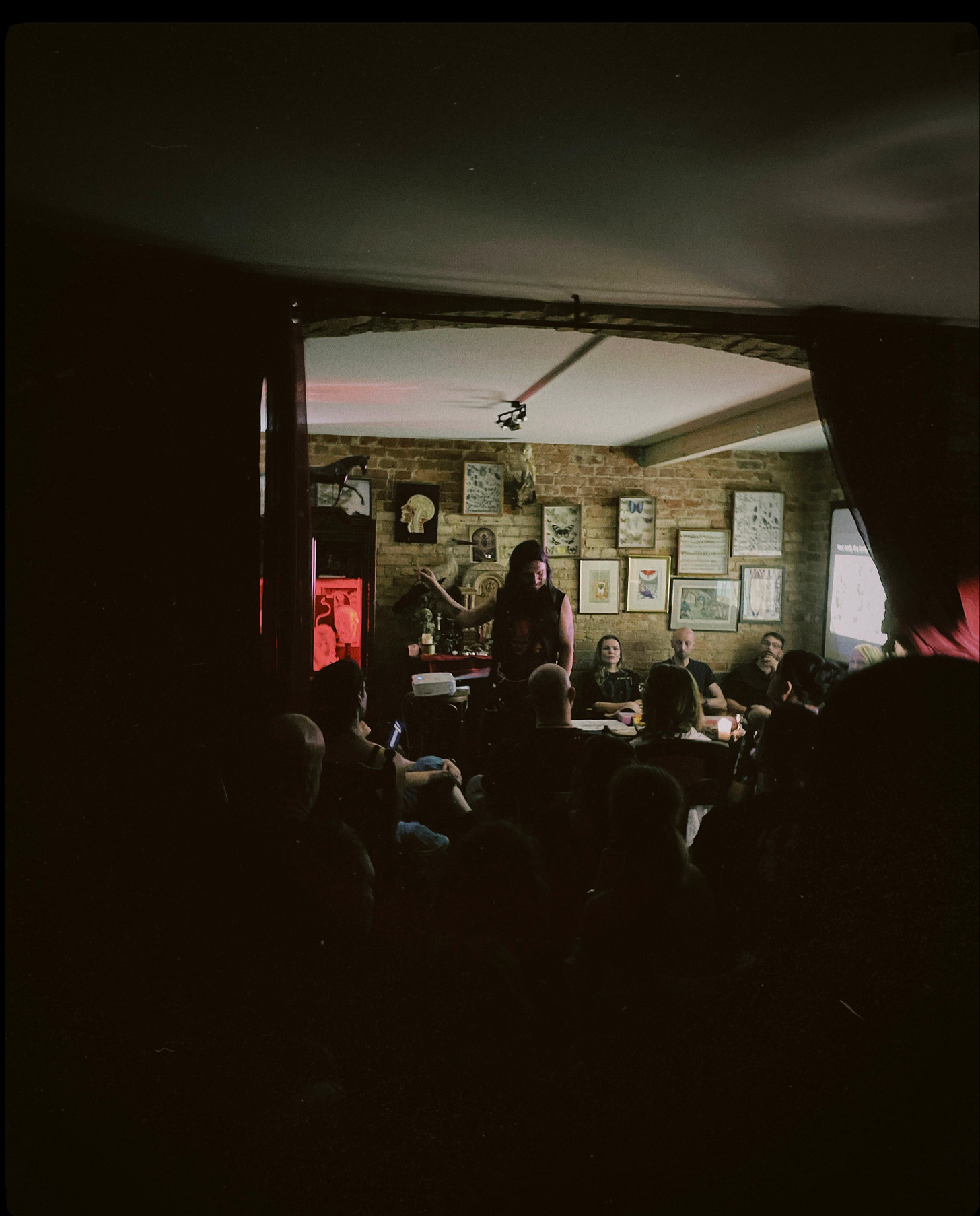
The most interesting and surprising part of my visit came on meeting a writer and musician, a friend of a friend, well versed in philosophy and esotericism - who told me of his ongoing re-acquaintance with his lapsed Catholicism, and his regular attendance at a Catholic church out in the suburb of Dahlem, which I had randomly discovered through cursory online research, and independently had also considered attending. Accompanied by another similarly inclined writer friend, we ended up attending Mass together early on Sunday morning before taking the train back home.
I was glad to return to the open fields and the mountains, where a great deal of work awaited me.
August 2025


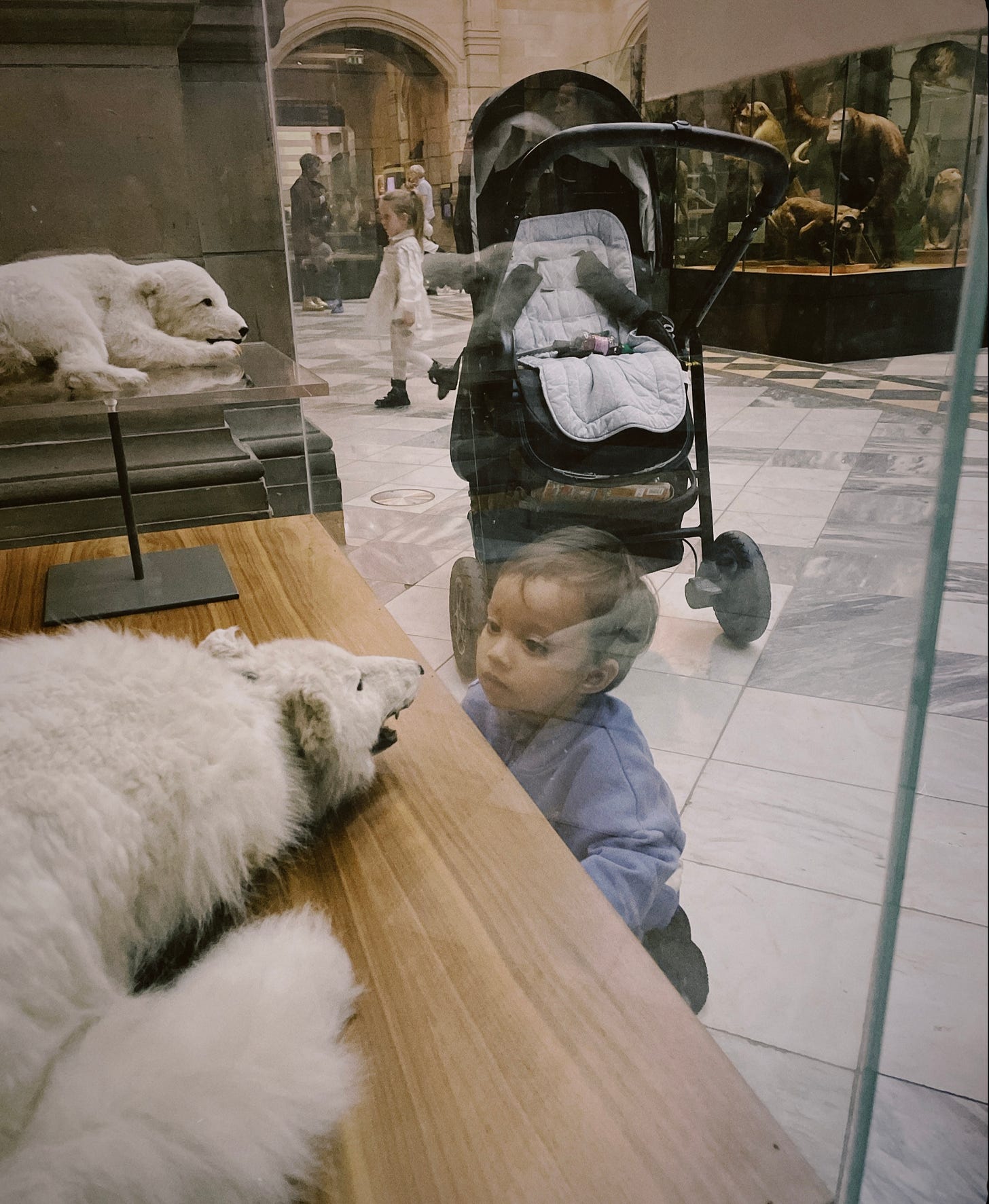
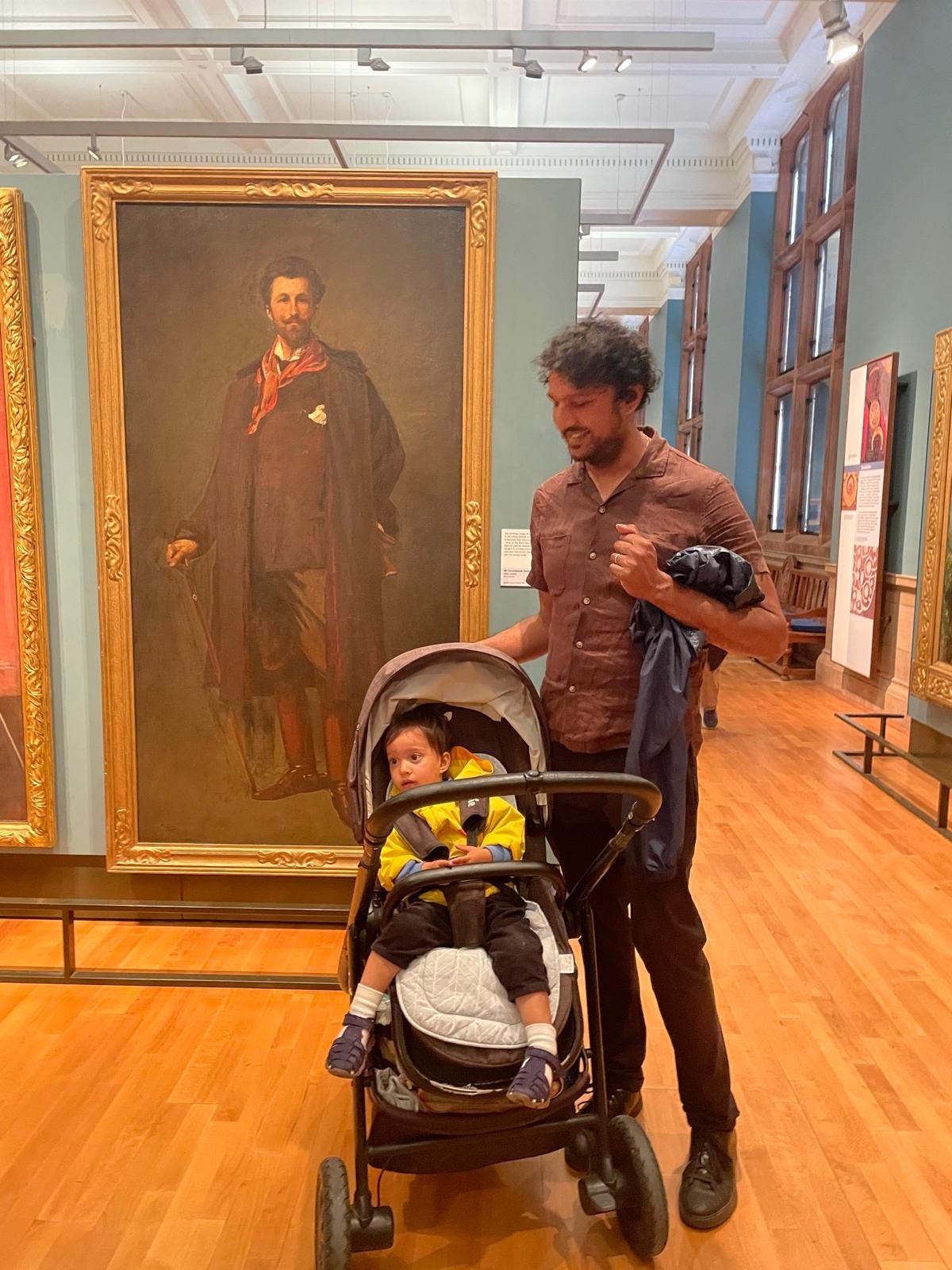
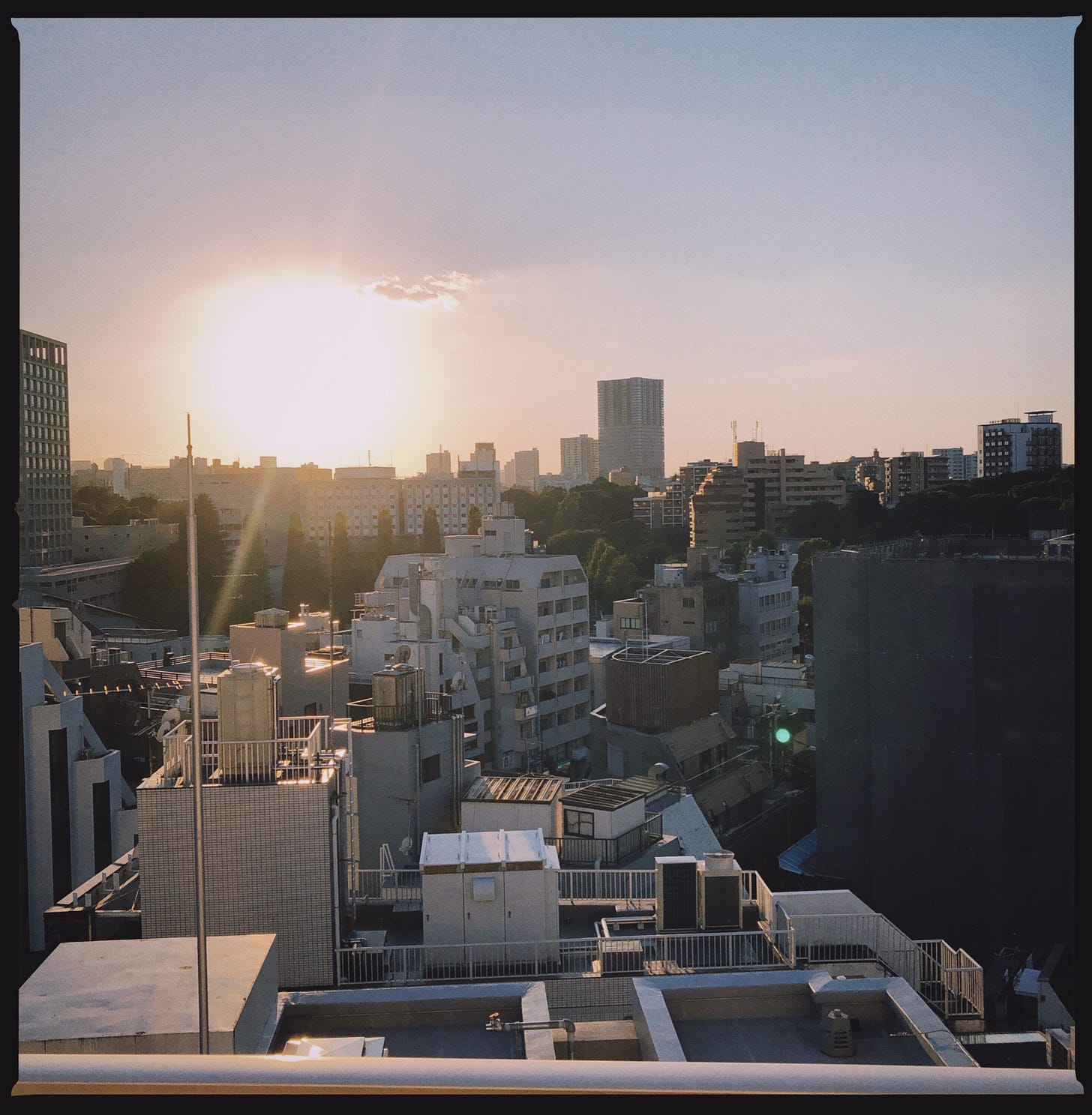
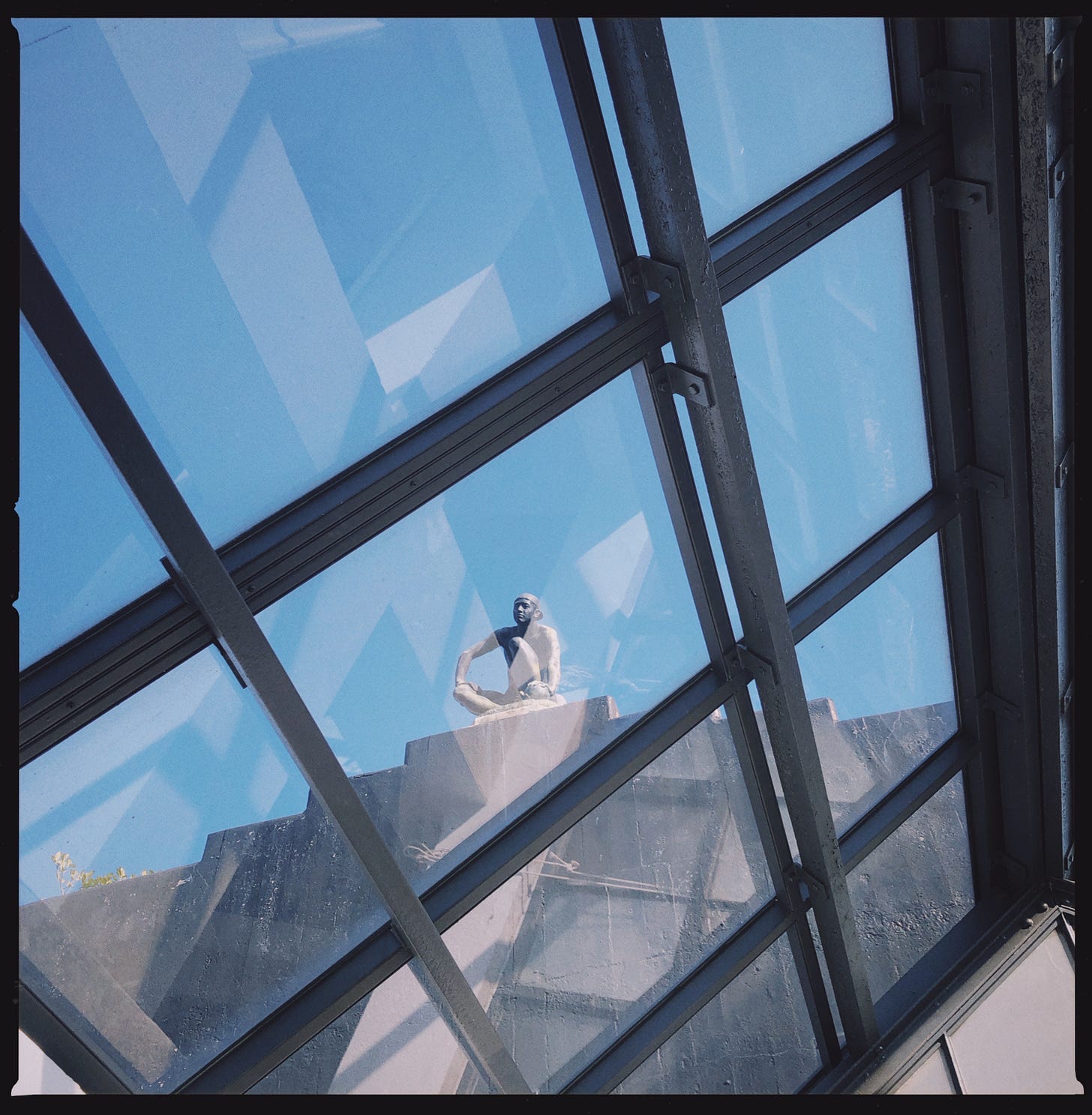
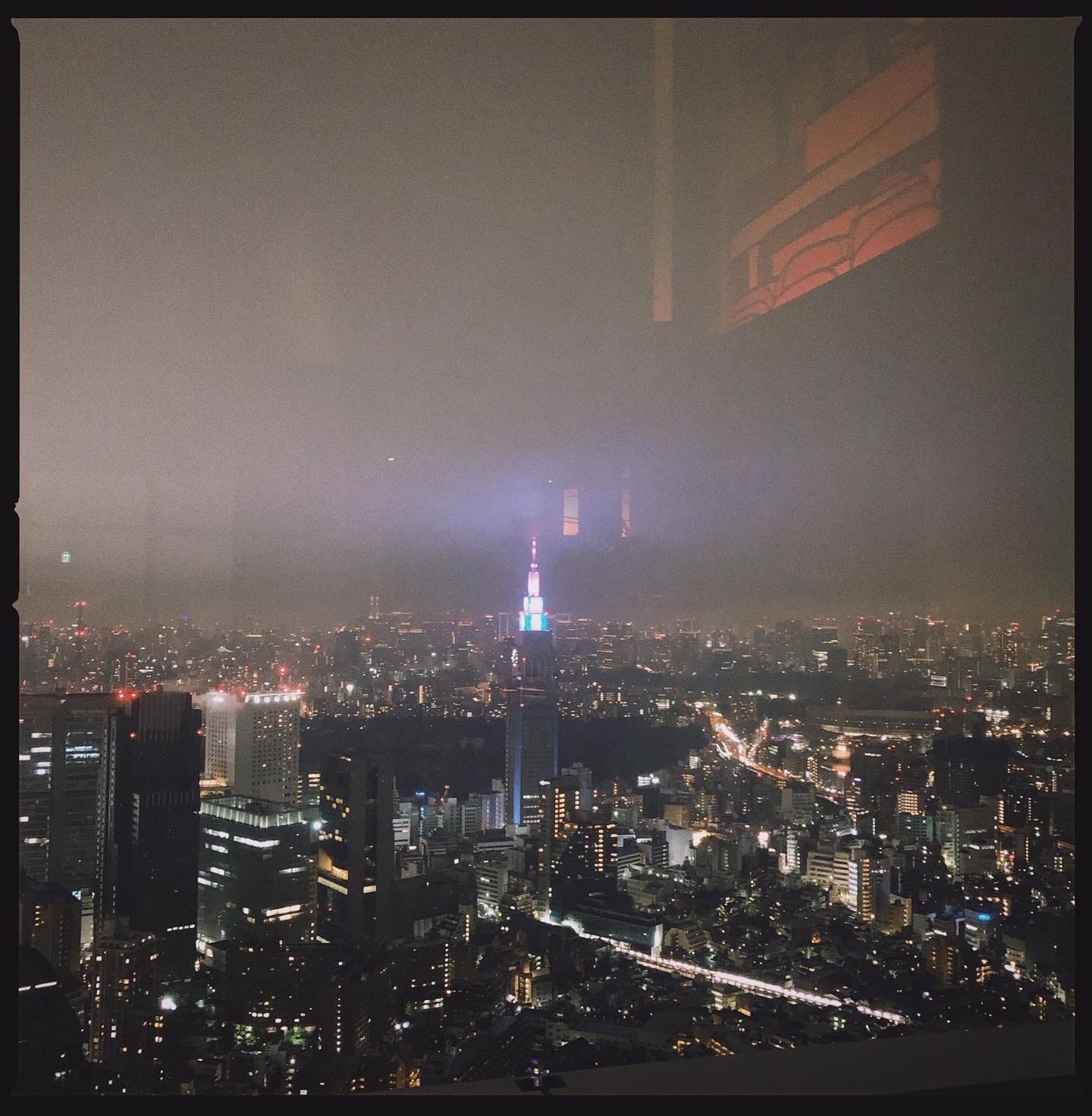
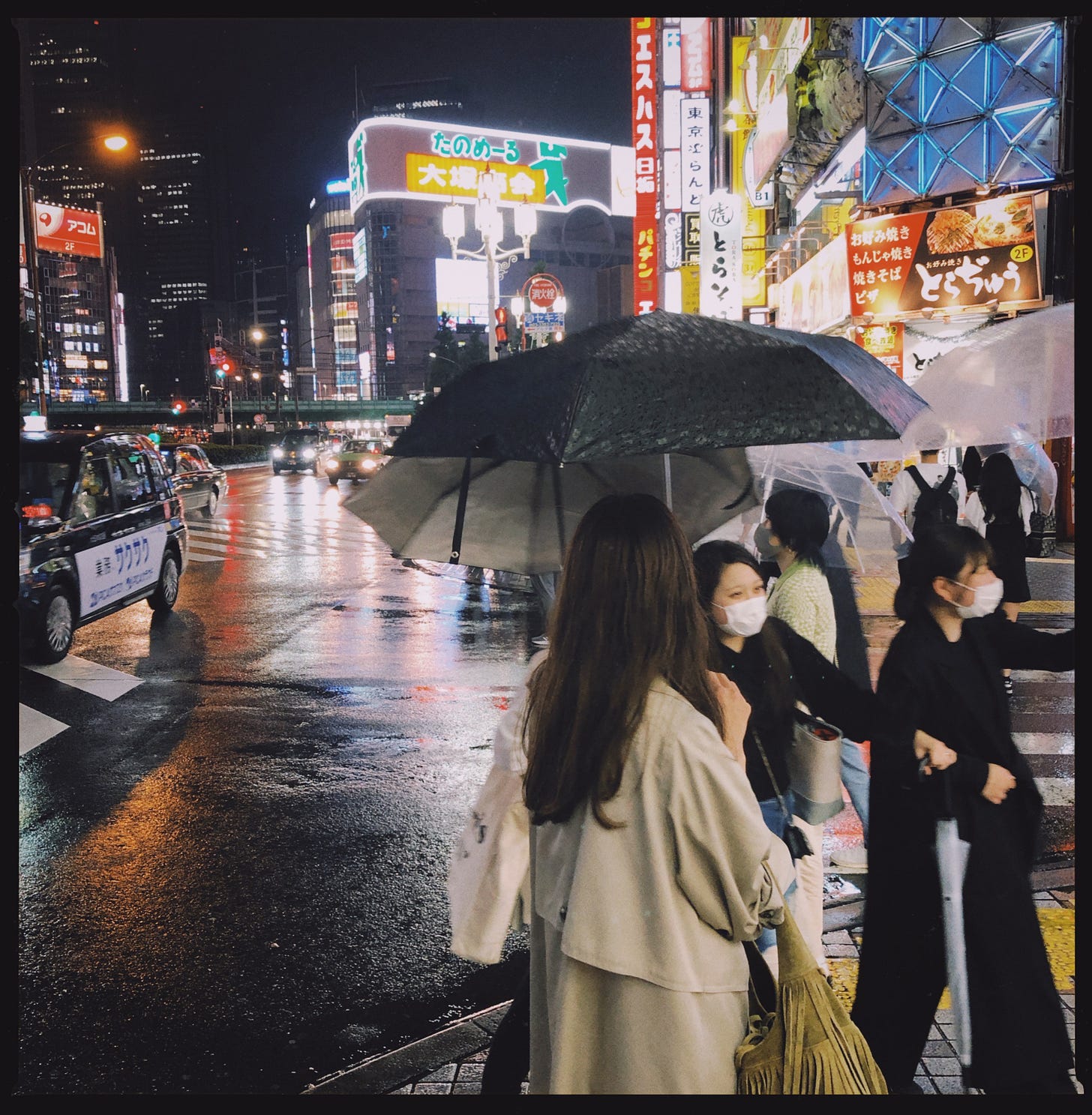
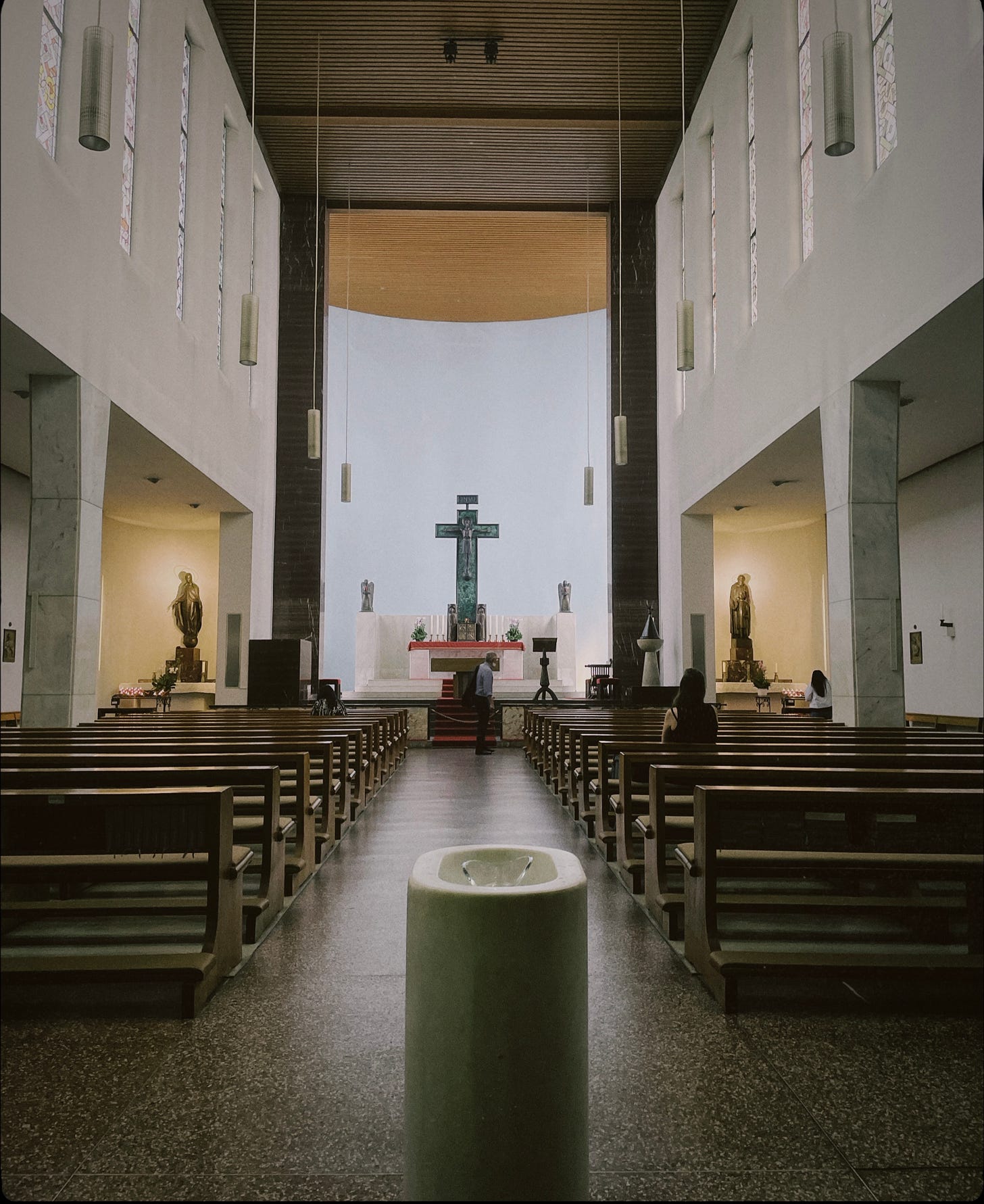
This is great, I found the reflections on Tokyo to be particularly compelling.